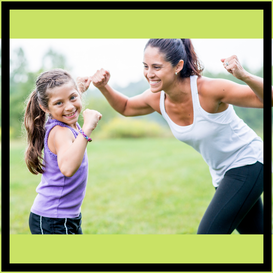 As we wind down 2021 and the New Year approaches, I am starting to think about New Year’s Resolutions. To be honest, I have a love/hate relationship with the whole resolution thing. On the one hand, I like to think about how I can improve, change and create new habits. On the other hand, resolutions can make me feel badly about where I have fallen short or wish I were different. All year I struggle with acceptance and the New Year can feel like a full court press of self rejection. But it doesn’t have to be this way. Breaking old habits and building new ones is hard. And quite frankly, starting out feeling deficient is no way to begin making a change. Instead, I need all the confidence and resolve that I can muster to even think about being successful. I wouldn’t send my kids out to try something new by highlighting all their shortcomings first. No, I would say, “You’ve got this. You are brave and strong and really great at climbing”. So why should it be any different for me? It shouldn't. So that is why this year I am taking a different approach to New Year's resolutions, one that I use when I am coaching parents. When I start working with a client, before we even begin to think about how to make a change, we take a deep dive into strengths and what’s working in their parenting. We do this because we want to work from a place of strength and positivity. From that place they are poised to build new skills and discover how to break old habits and catalyze sustainable change. So, this year I created my “Best of 2021 Parenting Edition”. And here is what’s on it: 3 ways in which I saw my values reflected in my kids. 3 ways I surprised myself as a parent. 3 moments of joy I experienced with my kids. 3 parenting moments I am proud of. 3 things I learned about myself through parenting. 3 opportunities I created for my kids. 3 things I am grateful for. And you can do this TOO! As you prepare for the New Year, start by making your own “Best of 2021: Parenting Edition”. Acknowledge all you’ve done well this last year. Give yourself some credit. Reveal what has worked for you and where you shined in 2021. Celebrate your wins, both big and small. Write them down, revisit them and decide how you can harness your strengths into possibilities for the future. Begin the change process by building confidence and faith in your own power. Flex your muscles in front of the mirror and see how strong you are. Then with confidence, clarity and vision draft your resolutions, go forth and watch yourself grow. Happy New Year!
0 Comments
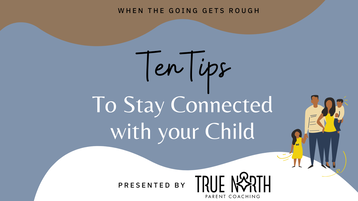 Connecting with your child is easy when everything is going well. But what happens when things are more difficult? We have all been there. Your child is melting down. You feel stressed about work or trying to juggle caring for other children. The meltdown gets bigger, the emotions get heated and in the end there are more tears, stress and bad feelings. When it's over you feel terrible about the outcome, you’re exhausted and your confidence has just been chipped away at AGAIN. When things get rough, fostering connection can be the difference between just limping through a difficult moment and instilling a sense of security in your child. When your child is experiencing a big emotion they need to feel safe and seen in order to regulate. It’s normal and okay not to agree with WHY they are having such an extreme reaction to something that, to you, seems so insignificant. In spite of that mismatch you empathize with WHAT they are feeling, not why they are feeling it. It is our job as parents to make a safe space for our kids to have ALL their BIG emotions. To show them that all kinds of feelings are ok and that they can handle them (and so can we). It is never easy, but this skill CAN be learned. That is why I created this FREE E-Booklet: 10 Tips to Stay Connected With Your Child when they are having BIG emotions. And it’s not just for parents of toddlers and young children either. It applies to TEENS as well. Teens are notorious for their BIG feelings and connecting with them is just as important then when they are little. Here are the first two tips to get you started right away. See these moments as opportunities to deepen your relationship, build regulation skills (yours and theirs) and help your child’s healthy brain development.
BOOM BABY! It’s WIN, WIN, WIN. To get ALL of the tips and how to use them, please use this link to get the E-Book directly into your InBox. If you found this helpful, PLEASE send this along to anyone and everyone who would benefit from these tips…..and who are we kidding... THAT’S ALL OF US!!!! 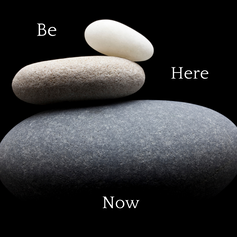 Hi Parents, I hope that you had a wonderful summer and that the transition back to school is going smoothly. Our family had a nice summer, with some in-state travel and much needed unplugged overnight camp for the kids. What we didn’t anticipate was that this summer would deliver life lessons that we weren’t expecting. Without going into the details, we were confronted with the two-sided tragedies of being close to parents who lost children and young children who lost their parents - suddenly and unexpectedly. For me, these incidents were a wake-up call that we are all living on the razor's edge. I am not naive, as I know we are always a moment away from the inevitable. But when I was confronted with these sudden and unexpected deaths I was driven right up against that edge and reminded that it can happen at any moment. But we don’t wake up each day living in fear that it will be our last day. And we can’t focus on the fact that our loved ones could be taken from us at any moment. That would be a terrible way to live. Thankfully our brains are wired to be able to put that thought aside most of the time and we can live our lives. These tragedies were a chance to reflect on the preciousness of life and served as a reminder of how fragile life is. As we supported our friends and community members suffering with the loss of their loved ones, my husband and I took the opportunity to talk with our boys about death, grief and loss. We showed what it means to support friends during these difficult times, talked about living in the present and discussed the importance of not only telling people that you love them, but why. For me it was a parental reminder to shift my perspective. As parents we can spend so much time worrying about the future. We focus on hitting milestones when the kids are little, we fret over grades when they are in high school. And as they leave the nest, we wonder if they will ever be able to cook for themselves, do their own laundry and pay their bills. These are all real worries, but they are just that, often not grounded in any reality, but fabricated by the pressures of parenthood and “good old fashioned” fear. So, when I find myself in a worry spiral I try not to distract myself with my phone. I slow down, take a breath and bring myself back to the present moment. Almost always when I scan my immediate situation, I see that my kids are really OK. This frame shift is about savoring the moments as they happen rather than spending time in the future, because try as I might, I cannot control their future. Or mine, for that matter. The here and now is REALLY all we have. I never thought that my kids would be this close to sudden and tragic death, but this summer, they were. And while I wish that I could have kept them from that harsh reality of the razor's edge for much longer, that was not in the cards for us. So we used it as an opportunity to learn and grow. As we move forward and face the reality of our mortality and that of our friends and family and we think about living each day with love and compassion. And I try - even when it’s hard - to make the most of this complex and beautiful life, moment by precious moment. With gratitude, Jenny  When my sons were little, they shared a room. I had painted it a green color that was called “Dill Pickle”. It was a cute color that matched the perky juvenile feeling of a room for a couple little monkey brothers. The boys moved in together when my youngest was 6 months and the older one turned 3. In that room they went from cribs to toddler beds and finally to a bunk bed. I spent many evenings listening to their cute shenanigans when they were supposed to be falling asleep. I awoke many mornings to their (not so) low chatter, playing together in their room while their dad and I slept in (to a whopping 7 am ha, ha, ha) on the weekends. When my eldest turned 12, they parted ways. Each in their own room, we succumbed to the necessity of teenhood and the natural pull of privacy. Instead, now I hear them yelling across the hallway as they play video games simultaneously together, but in their separate quarters. Now, their Dad and I wonder if they are still breathing as they slumber past 11 am on the weekends. About a year ago we had our bedrooms painted and at the time I tried to get my youngest to move from Dill Pickle to a light gray, anticipating that he’d want something more mature as he turned 13. Still at the tender age of 12 and reluctant to make a change, he refused and we repainted it the familiar Dill Pickle. Lo and behold, just weeks after his 13th birthday he asked to change the color of his walls. I had called it, but too early...he was ready in his own timeline, not mine. Happy to indulge him but not wanting to have a painter in my house during COVID, I decided to take on the job myself. We found the color he wanted and I set to work. Plugged into my favorite tunes, I painted over the Dill Pickle. And while I rolled over the green with the new gray I was awash with the memories that those walls carried of an earlier time in my parenting. And as I painted, I was not just saying goodbye to the warm, playful color, but that phase of my parenthood; the school-aged years of playdates, Legos and the pleasure of reading to my kids. With each stroke, I was ushering in the next, and final phase of parenting my sons at home. It was beautiful to relive the joy of those early years when they needed me for everything, and a little scary to think about navigating the teen years, a time marked by their increased separation from me. I was flooded in moments sour and sweet, of conflict and resolution, of cuddles and pep talks, centered around topics we all thought were so monumental at the time. I didn’t think that painting the room was going to be so much more than just changing the color. It gave me pause to recognize that I have grown as a parent, and I had developed strengths while ushering them to this new threshold. And how I’ll use that grit, resilience and parenting muscle to get me through the teen years. Who knew that painting a room would be a parenting rite of passage, but it was. The insight was as unexpected as it was deep and meaningful. This experience helped me feel ready to be the parent of teenagers. 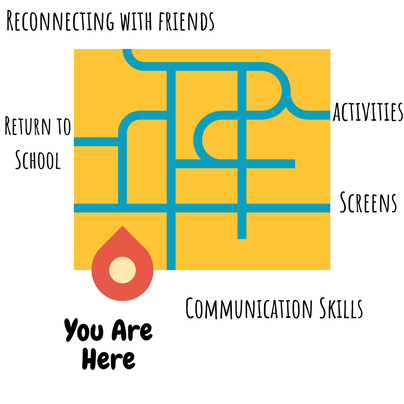 (****DETAILS AND OUTLINES FOR TRANSITION TIPS ARE BELOW****) As we transition out of the pandemic we are in uncharted territory. Life looks like it did before the pandemic, but things are definitely different. Building a new map to help ourselves and our kids transition to post pandemic life with intention is important to consider as we emerge from the last year and a half. I recently had an experience that taught me that while this can be overwhelming and scary, we can find ways to navigate through this transition with more ease and grace. Last month I had the good fortune to visit Brooklyn, New York to help my niece celebrate her graduation from college. My husband grew up in Manhattan, so I have been to New York so we visit frequently. On the first morning I went for a jog in Prospect Park, Central Park's Brooklyn sister. The park was in bloom, teeming with green foliage, flowers and happy New Yorkers enjoying a perfect spring morning. It felt just like Central Park joggers and bikers enjoying laps on the road around the park. As I made my way around, I started to worry that going all the way was too long for the time I had. So I decided to cut through the park. Sadly, the path I chose did not go through to the other side, but dead ended at the lake. After a few attempts to find my way, I realized I was lost. Eventually I found some signage, but because I had no frame of reference the landmarks were not helpful. This was definitely NOT Central Park. At this point I was stressed, nervous and uneasy. I was no longer enjoying my jog. Eventually I got back on track with the help of a fellow jogger. It wasn't easy to admit I was lost or to ask for help, especially in what looked and felt like a familiar place, but in the end it was worth it, leaving behind my stress to enjoy the rest of my morning run. Later in the day I was reflecting on my experience in the park. It struck me that it isn’t unlike the transition that we find ourselves in right now. While I have been to Brooklyn many times, the park was new to me. And while Prospect Park is LIKE Central Park it is also VERY different. This is not unlike the familiarity of the things we are returning to post pandemic. While things seem the same they are different and so are we. Navigating old situations in the new post pandemic context can cause anxiety. It is easy to feel lost and stressed just like I did that morning in the park. While coming out of this challenging year might at times strange and overwhelming it should also feel good. What kind of support do you need to return to activities, social life and work? And how can we support our kids going back to school full time this fall, attending camp this summer, and learning to socialize with family and friends in person again? To get you started, I have put together a few tips to help you and your kids find your way:
We are ALL experiencing post pandemic life for the first time. I hope that these tips can help you and your kids go from less anxiety to greater ease and joy as we resume some of life's pleasures we had to give up during the pandemic. And if you need more support, you have options. Find a therapist for emotional support, a parent coach to navigate new parenting challenges and connect with friends about challenges and successes. Ask for the help you need, get the support you deserve and make the most of enjoying this transition out of a very difficult time and into better days.  I am the mom of two teenage sons. While they are quick to have emotional outbursts as teens often do, I am not usually privy to what is going on inside their heads and hearts. Sometimes it feels like they are hidden deep in some kind of parent proof vault. So how do I crack the code to get inside? While I wish it was as easy as just sitting down for family dinner it often takes more thought and intention. At my dinner table after the requisite review of our day, the conversation inevitably leads to the boys sharing the latest antics of their favorite You Tube streamers or their most recent performance in Valorant. I always joke that when they are done we are going to talk about our “feelings”. They know I am kidding (sort of) but after uproarious laughter and some eye rolling, they go back to THEIR favorite subjects. So I have learned that the dinner table isn’t where I am going to reach them at that deeper level. Nevertheless, I want into that vault! But I know that it has to be on their terms, not mine. I want them to know that they can come to me when they are in need of emotional support. And that’s no joke. Since my teens aren’t naturally emotive, how do I crack the code to get inside? The answer is CONNECTION, CONNECTION, CONNECTION. So with my sons, I make sure to find time with them one on one each day, even if it’s just for 5 minutes. How? Sometimes I watch them play a video game, we walk the dog together or connect in the car. Usually it IS still about video games, YouTube, school and friends but that’s ok, because I know that’s how to build the bridge to their hearts and minds, especially at this age and stage of development. What is NOT helpful is prying or nagging to be let in. Nothing will instigate the eye roll and shut the emotional vault quicker than that. I trust that if I am present and make myself available, they’ll come to me when they need me. And when they do, the REAL work begins. I show up for them by:
Click to learn more about Active Listening and how to ask Open Ended Questions. 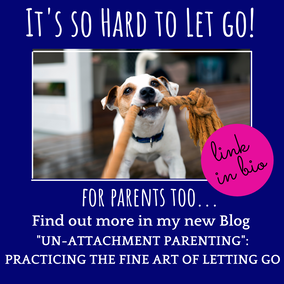 This week my youngest child turns 13 and I now am the proud mother of two teenagers. Contrary to what I expected from the media and from lore, I am not experiencing managing two moody, brooding kids. It's me that needs to be put in check, not them. What a shock it was to learn this. Let me explain. When my children were born the parenting guru of the day was Dr Sears. The parenting style came from the book his wife Martha and he wrote called Attachment Parenting. Together they raised 8 children and advocated for a collection of seven practices they call the Baby Bs: “birth bonding, breastfeeding, baby-wearing, bedding close to the baby, belief in the baby’s cry, balance and boundaries, and beware of baby trainers.” Reflecting on that list, with two teenagers on my hand I am far from the Baby B’s. So much of what the Sears’ advocate naturally falls away once the baby grows. It’s pretty easy to un-attach from co sleeping, breastfeeding and wearing your baby. Can you imagine that with a teenager? (squirm-city!). In so many of the more subtle ways I find myself trying to learn the fine art of “un attachment” parenting that is as fundamental to raising teens as bonding is with your newborn. Taking stock, I realized that in some ways I am doing a great job, letting the kids take risks and allowing them more independence and freedom, but in other ways that are tied to their emotional well being, I fear I am falling short. Here’s an example. My eldest is doing all school at home and I find myself privy to everything that’s going on. He is very responsible about his work, and yet everyday I ask him his plan for homework, assignments and check in about communication he needs to have with his teachers. While he is very patient with me, I know it is annoying to have me up in his grill all of the time; honestly I annoy myself while I am doing it. So much so that I finally had to ask myself why. What do I hope to accomplish by being so involved? What is really going on here? Am I worried about him getting into college? Do I think he will fail? So what if he gets a bad grade and feels bad about it? None of these possibilities are very realistic (except the poor grades, which happens to everyone). The truth is that instead of “saving him” I am really trying to save myself; Save myself from disappointment and from my own discomfort when he has hard feelings. And this isn’t fair because my selfishness is actually depriving him the opportunity to build his own tool kit of grit and resilience and the ability to handle all kinds of emotions and experiences. All the while I’m sending him the message that I don’t trust that he can handle his schoolwork on his own, or get through difficult times. Not very nurturing and not what I want for my kids. My teenagers need agency and ownership of their lives, so that they can learn to navigate their ups and downs. It is not my job to keep them in emotional bubble-wrap. It’s not good for them or for me. I need to learn to be a foundational presence, waiting in the wings, to cheer them on, pick them up when they are down and support them no matter what. I can be their rock, steady and sure when they are stuck, upset and adrift. This is the greatest gift that I can give them; the opportunity to gain the confidence to handle whatever comes, so that they can take risks, comforted knowing that I will be here for them no matter the outcome. Ultimately this is about me letting go of my own fear while building confidence in my own emotional resolve. Like so much of parenting it’s about looking within to shift MY perspective and change MY approach with them. I am not sure what ever happened to the Sears’, or if new parents still embrace the 7 Baby Bs. I do find myself wondering how they “unattached” from their 8 children once they became teenagers . And if it worked well maybe they could help us out and write volume 2 “Un Attachment Parenting the 7 Teen’s Ts”. I know that I could use some guidance on how to gently, compassionately unattach from my kids and watch their story unfold as they experience their life. Dreams, Puzzles and Parenting: how I learned to become a dreamer, inspired by jigsaw puzzles!1/30/2021  I have been reflecting a lot on dreams lately. Not the sleeping kind, but the big vision and hopes you have in life. I have never been much of a dreamer. I never wanted to be a princess or an astronaut. I didn’t dream of my wedding day or my dream job. Dreams felt out of reach and beyond my control. Instead I stuck with attainable goals, things I knew if I used enough drive and elbow grease I could make happen. Lately, though I have been exploring the concept of fulfilling a dream. This is because as a parent coach, I ask my clients to dream about how they want things to change with their children. It’s not hard for parents to envision kids who have a perfect balance of on-screen and off-screen activities, who jump right up off the couch to help you unload the groceries and when asked, “How was your day?” give you a detailed synopsis of what they did and how it made them feel. I ask my clients to paint this picture because dreaming of a preferred future is an essential part of the change process. By their nature, dreams are often deep, transitional states that can seem out of reach. Putting them in writing or on a vision board helps. The concept is that the dream works towards you while you work towards it. I took this on faith, but my pragmatic brain had a hard time coming to terms with what seemed like a “magical process”. I had never heard of “letting go” as part of making dreams come true. But I have seen it work over and over again with my clients. Dreams don’t become a reality without hard work and determination, but there is something to this release of the vision that is a part of the recipe. Recently I had an experience that brought it home for me. And in a most unlikely moment. Since the pandemic started my husband and I have been doing jigsaw puzzles. I love the orderly goal oriented, instant gratification and meditative nature of puzzles. On the outside of the box is the image, complete. Inside all the small steps towards making that vision a reality. It takes time, commitment and intention sitting down each day to make it happen. Doing a puzzle is a lot like building a dream. As I was working on a challenging puzzle, last week, I was sure that we would never be able to complete it. Instead of giving up I turned my attention to one corner area, deciding to take it one small step at at a time. Eventually I fit enough pieces together for the image begin to emerge and I felt hopeful that we could complete it. I resonated with the process as similar to asking my clients to paint the full picture of what they want to change, but then identifying one corner, one set of small steps, to start on. It was so cool to make that connection. And then it got even better. When I’m puzzling there is always that part in the process when I encounter a moment where I can’t find one stubborn piece. Frustrated and convinced that the piece is missing I move on letting it remain empty, when BAM! the elusive piece emerges. I recognize it instantly and place it with great satisfaction into the puzzle. The last time this happened to me a light bulb went off . This was exactly what it meant to hold the dream in your mind but also to let it go. Your brain is still holding the dream, just like it’s holding the shape, size and color of that missing puzzle piece. This experience embodied for me the possibility of holding to a dream in your mind while also letting it go. It’s almost as if you can’t even find that piece UNTIL you’ve released it. Watching my clients do this dance each day has truly inspired me and for the first time I also have a dream I am pursuing. I have chosen a tough 1000 piece puzzle. It’s a beautiful image, one that I have been designing for the last few years. I have it up on a vision board displayed where I can see it everyday, BUT I have also let it go. With determination and drive, I fit pieces together one at a time, knowing that even when I can’t find that one stubborn piece, it’s working it’s way towards me. And when I finally find it and fit the last piece in the puzzle, there it is, the complete image all put together. I step back and look at what I have accomplished, a testament to my hard work and a reflection of my dream meeting me halfway there. Maybe it’s really about giving up control or maybe it’s magic, but either way I believe! I was recently interviewed by Matt Albert of the Big Picture Parenting Blog at Psychology Today. Thanks Matt for the opportunity to talk about Pandemic Parenting in 2020 and 2021. It’s been quite a year! I’ve been speaking with other parenting experts to hear their thoughts on 2020, COVID parenting, and looking forward to 2021. This week, I had the chance to hear from Dr. Jenny Michaelson, a PCI Certified Parent Coach, about pandemic parenting. Q: What’s been on your mind as we wrap up an undoubtedly difficult year for parents? The scene in Ferris Bueller’s Day Off at the Chicago Museum of Art keeps popping up for me. You know the one, when Ferris and his friends are looking at George Seurat’s painting A Sunday on La Grande Jatte. The camera zooms in until you can just see the dots of color and I’m reminded of how perspective can make such a difference in the way we view things. When you look closely it’s beautiful individual brushstrokes of color. When you step back it’s a whole landscape. No one would argue that if we step back from our world for a wider perspective today it’s more like Picasso’s La Guernica than Monet’s Water Lilies. Right now life is chaotic, confusing and messy. The pandemic has turned most of our lives upside down. Q: What would you say to parents who are feeling down about their parenting during the pandemic? You are not alone. Like a lot of parents I know, I have spent a lot of time thinking about all the ways that I have failed my kids as I have had to balance working from home, distance learning, isolation and the stress of living through this charged political, environmental and social climate. I am sad to say that not a lot of great parenting moments came out of any of that reflection. Like the time when I was so fed up with my son’s messy room that I screamed at him that not only was I going to stop doing his laundry but he was going to have to start paying me to use the washing machine. Pandemic parenting stretched me to bend rules and make decisions for my kids I never would have in 2020. I lost my temper more often, I let them stay on the screens way too long and we ate more dessert in these last ten months than we did in our entire lives prior! Q: Looking forward, what do you suggest parents consider in the new year? As we gear up for more pandemic parenting in 2021 I realize that it’s actually not about taking in the wider view this year, but looking at the details. I ask my clients to look closely at their situation to find the places in between the conflict and stress where things are working. Encouraging them to find positivity even in light of what they are facing helps bring hope and resilience, calm and focus. So I took a deeper dive myself, to find the small moments in 2020 when I did ok as a mom. What I found out was that while my kids ate a ton of dessert this year, they also learned to bake and clean up after themselves. While I lost my temper more than usual, I also modeled how to repair relationships, by apologizing to them when I was out of line. And while they were on the screen WAY more than I wanted, I was using that time to take care of myself so I could have more patience with my family. Taking the time to focus on sweet moments with my kids even if they were few and far between helped shift my negative perspective. Q: Are you feeling hopeful about 2021? My deep dive into the positive has psychological and physical benefits that I am hoping to feel more of in 2021. These include lower stress levels, better overall physical health and increased coping skills. Until life can get back to normal and I can shore up my kids screen use and I can send them back out in the world to go to school, hang with friends and play, I’ll need as much of that as I can get in 2021. We have miles to go before life looks anything like Seurat’s painting, when we can lounge in the park without concern for our health and safety. Our challenge as parents as we prepare for what’s to come in 2021 is to continue to shift the frame, turn on the zoom lens and focus on the colorful brushstrokes. Set the intention to reflect on your parenting by keeping track of what went right, daily, weekly or even monthly. Pay attention to the small things that bring our focus to what’s good in our parenting and beyond. It will make the difference between just getting through it and feeling positivity, joy, hope and satisfaction during these troublesome and difficult times. Jenny Michaelson, Ph.D., is a PCI Certified Parent Coach®. In her practice, True North Parent Coaching, she works with parents to uncover strengths and develop strategies to make transformational changes to overcome parenting challenges and bring more joy, ease and fun back to parenting. Next week kids will be off of school for winter break and with many cities under new shelter in place orders they will find themselves with little or nothing to do. For most kids that means more screen time, and for most parents, increased anxiety about how much screen time is too much and how to get kids engaged in off screen activities. While winter break isn’t the time to try to reduce screen time, you can definitely be intentional about setting up guidelines that promote a healthy balance of screen time and other activities that nourish your kids both physically and mentally.
Having a family meeting to talk about winter break and screen time guidelines is a great way to start the conversation. Here is a great resource about how to run a family meeting: https://www.verywellfamily.com/how-to-hold-a-successful-family-meeting-4155312 Here are a few tips to get you started. Use the ones that feel right for your family:
Contact me if you’d like a one hour coaching session where we will make a Winter Break screen time plan that’s just right for your family. Warmly, Jenny |
AuthorJenny Michaelson is a PCI, Archives
December 2023
CategoriesWriting Contributor at:
|
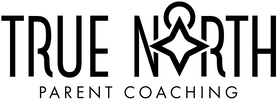

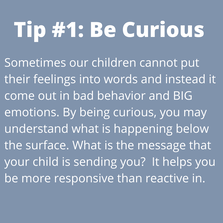
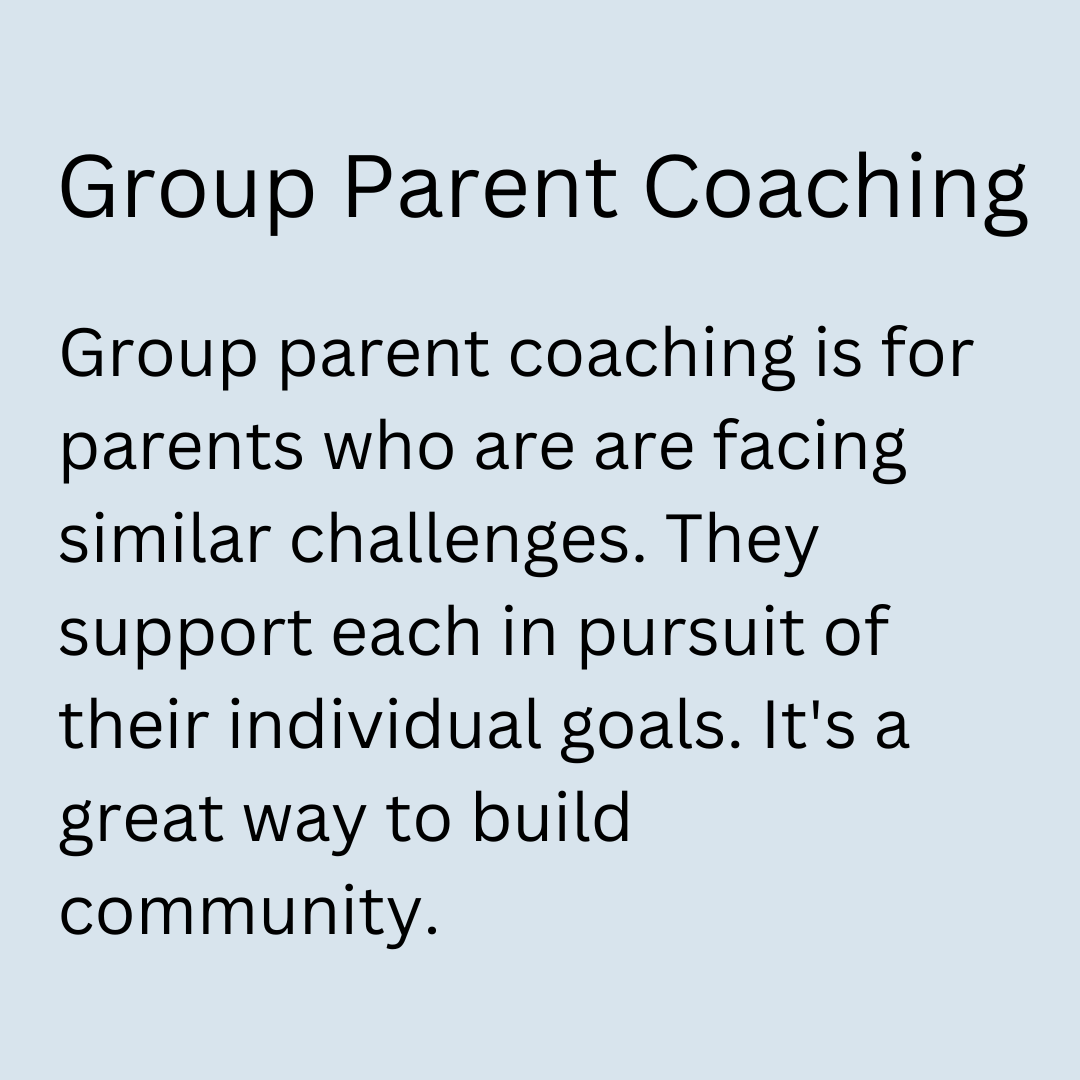

 RSS Feed
RSS Feed



